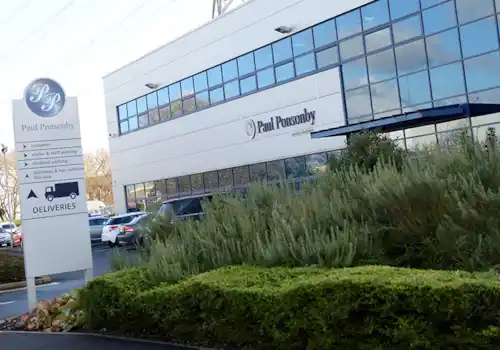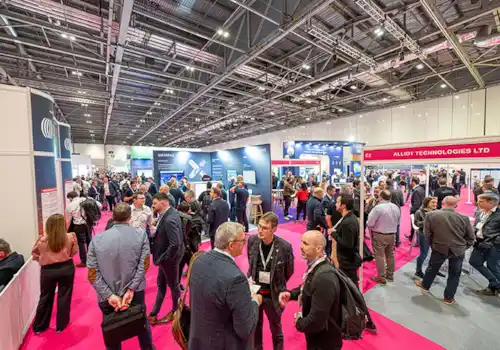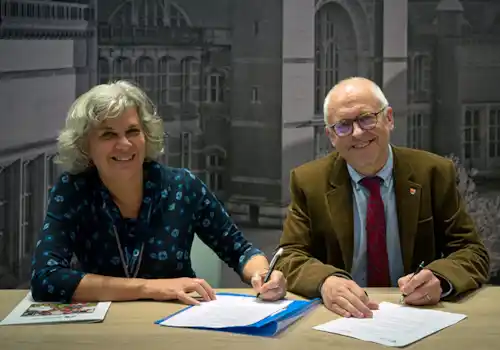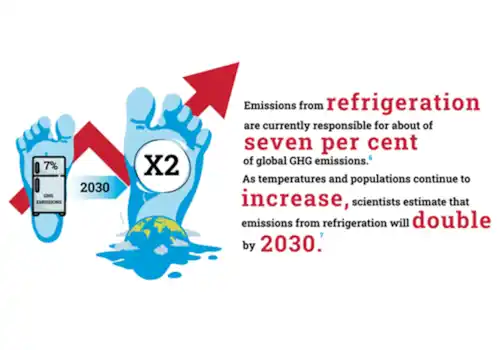09 June 2025
|
Heat pumps and beyond: Evolving the Boiler Upgrade Scheme for Britain's net zero future
Gav Murray, Hive Heating Director at Centrica New Business Net Zero, explains how the Boiler Upgrade Scheme is making the eco-switch more affordable — and therefore more accessible for homeowners and small businesses.
The UK's commitment to achieving net-zero carbon emissions by 2050 has put home heating systems firmly in the spotlight. With domestic heating accounting for approximately 18% of the UK's total emissions1, transitioning away from traditional gas boilers to low-carbon alternatives has become a critical focus of Government policy. The Boiler Upgrade Scheme (BUS) helps home and small business owners take a step forward on their journey, offering financial support that makes the eco-switch more affordable and therefore more accessible.
Understanding the Boiler Upgrade Scheme
Launched to accelerate the adoption of low-carbon heating systems, the BUS provides up to £7500 for homeowners and small businesses in England and Wales to subsidise the cost of installation for new heat pumps and biomass boilers.
This funding is designed to cover a large proportion of the upfront installation costs associated with these technologies, making it an attractive alternative to a gas boiler for homeowners. Over the last 12 months the government committed £189m to the scheme, up from its £50m in 2022 when it first began. The rising budget has increased in line with growing demand, and the next 12 months look set to see further investment to continue this momentum.
March marked a significant milestone for the scheme, recording its highest-ever number of applications and surpassing 4,000 for the first time – proving the scheme’s growing success.
The benefits beyond the grant
While the financial assistance is significant, the advantages of transitioning to low-carbon heating extend far beyond the initial installation support.
Modern heat pump systems operate with remarkable efficiency, typically up to four times as efficient as a gas boiler. For homeowners, this efficiency translates directly into savings on monthly bills.
The environmental impact is equally significant. Early data reveals that heat pumps installed under the BUS program prevented approximately 17,000 tonnes of carbon from entering the atmosphere in the first year of the scheme2. That's equivalent to the emissions generated from around 55,000 transatlantic flights between London and New York2. Low carbon heating technologies have also been shown to benefit property values, often driving up house prices. A report shared by Oxford Economics last year showed that, environmentally conscious buyers are increasingly willing to pay more (+3.4%) for properties that already have these systems installed, viewing them as both a lifestyle choice and a long-term investment3.
Perhaps most importantly though, transitioning to low-carbon heating is a forward-thinking decision. As the UK progresses toward its net-zero commitments, early adopters are effectively future-proofing their homes against upcoming regulatory changes and potential carbon taxation. What seems like a progressive choice today is shaping up to be the standard requirement tomorrow.
Addressing the adoption challenge
Despite the clear benefits, heat pump adoption in the UK continues to lag behind many of our European neighbours. While the BUS represents a positive step forward, several key challenges remain that must be addressed to accelerate the sustainable heating transition, if we are to reach a level of production and adoption where the BUS can be reduced or removed.
Britain's varied housing stock poses a substantial challenge. The reality is that not every UK property is currently suitable for standard heat pump technology. Many older buildings, apartment blocks, homes with architectural constraints and poorly insulated buildings require alternative low-carbon technology. The government’s recent announcement, that it is consulting whether to expand the BUS to also include low-carbon boilers such as air-to-air heat pumps and heat battery (zero emission) boilers, along with heat pumps, could offer an alternative solution to help households to decarbonise their properties.
A skills shortage is another challenge facing the industry. To overcome this challenge, Hive is asking for urgent reform of the apprenticeship levy, to enable businesses to upskill their engineers to install heat pumps using existing funding. This will help speed up uptake because the installation services will be there to meet demand and drive forward adoption.
Perhaps equally important is the lack of education around heat pumps and low-carbon heating technology in general. Many homeowners remain unfamiliar with how heat pumps function or the specific benefits they offer. Education efforts targeting both tradespeople and homeowners represent a crucial component in driving up adoption rates. Critically, communication around heat pumps must not only focus on environmental benefits but also tangible advantages to individual households, including comfort, running costs and property value.
The path forward: A holistic approach
To accelerate heat pump adoption and meet climate goals, we need to move beyond viewing these systems as mere boiler replacements and embrace a more comprehensive approach.
Integration is key – heat pumps should function as central components in connected home energy systems. Take our recently launched Works With Hive platform4, for example, which allows partner devices to be easily controlled through the Hive App as part of the Hive ecosystem.
Bringing together device control and reporting in one place, uniting disparate home technologies into a cohesive ecosystem that delivers both simplicity and optimal efficiency for customers, therefore reducing costs. Immediately, this simplifies the technology and brings immense value to the consumer.
Timing matters significantly in the transition to low-carbon heating. We notice that for us, spring and summer heat pump installations are most popular, as heat pump upgrades are planned during heating system downtime, when their installation causes minimal disruption to households.
Furthermore, energy providers have a crucial role to play through specialised offerings. Tailored energy tariffs, already common for solar and EV, designed specifically for heat pump users could provide tangible financial benefits, making adoption more attractive.
One of the most important elements for the low carbon heating market is consistency, because over the last few years, there have been multiple grant and policy changes. And whilst some have been very positive, for example, the Boiler Upgrade Scheme grant increases - the market needs consistency to provide consumers, installers and manufacturers with confidence in low carbon heating technologies.
We’re looking forward to the upcoming Warm Homes Plan Strategy, which will set out the Government’s long-term vision for how we will decarbonise UK homes and reduce energy bills over the next 5 years. This plan, once confirmed, will provide much needed clarity and give homeowners and the industry that much needed confidence that this technology really is the future.
The challenge of widespread heat pump adoption isn't technological, because the innovation is there. The solution to driving uptake requires reimagining consumer engagement, energy pricing structures and Government support. This holistic approach represents our best chance to transform residential and commercial heating at the pace climate urgency demands, creating comfortable, efficient homes while dramatically reducing carbon emissions.
Looking to the future
As we move forward, collaboration between industry, Government, and consumers will be essential in meeting our climate goals. The BUS represents an important first step, but its evolution must continue to address the practical challenges that homeowners face when considering the switch to lowcarbon heating. The decision to extend the scheme to cover heat batteries is exciting news, and I hope homeowners, given another technology choice, will feel encouraged to make the switch.
Through innovative partnerships, strategic Government interventions, and comprehensive consumer education, we can ensure that the transition to sustainable heating is not just an environmental necessity but the best choice for every UK homeowner. The heat pump revolution is underway, but its success will depend on our ability to make these technologies accessible, affordable and appropriate for the diverse housing stock that characterises the UK landscape. By working together, we can bridge the current divide and create a warmer, more sustainable future for all.
https://hivehome.com
Source
1. Decarbonising Home Heating report (National Audit Office) 2024
2. https://tinyurl.com/rdbf7aj5
3. Oxford Economics | The growing importance of energy efficiency in home buying decisions 2024
4. www.hivehome.com/discover-hive/works-with-hive








